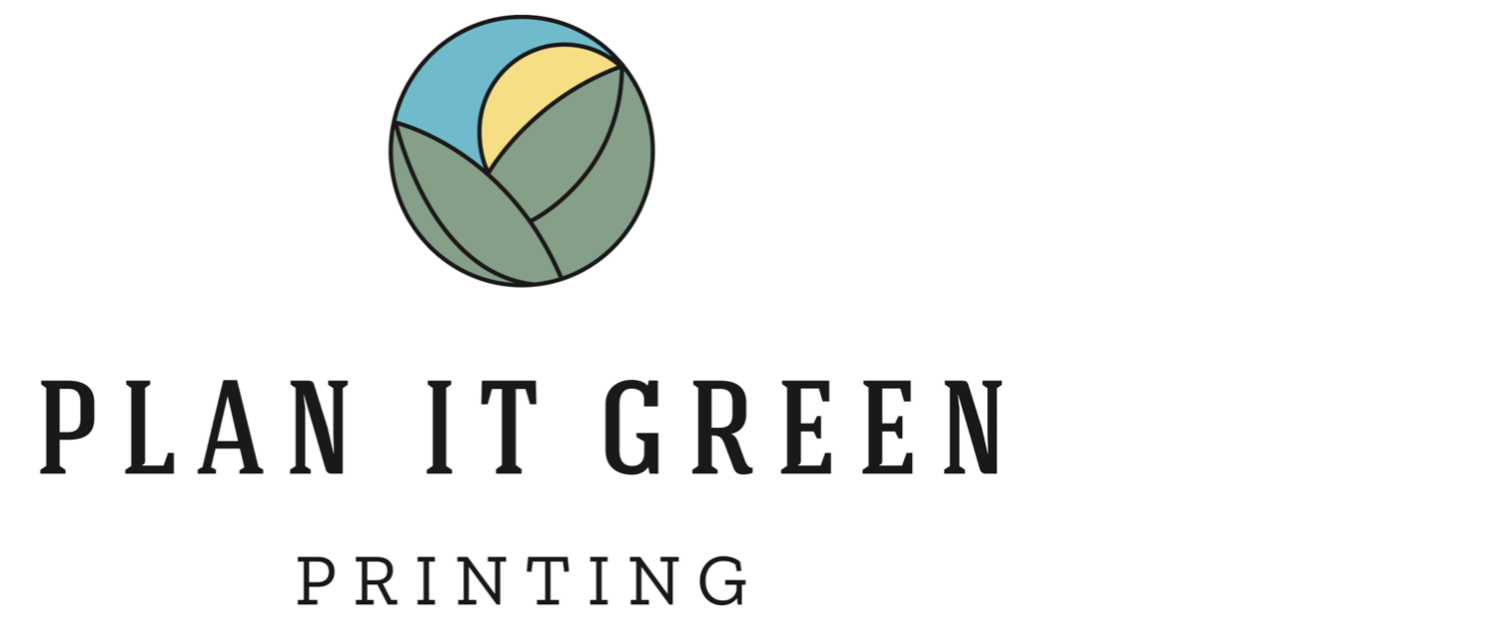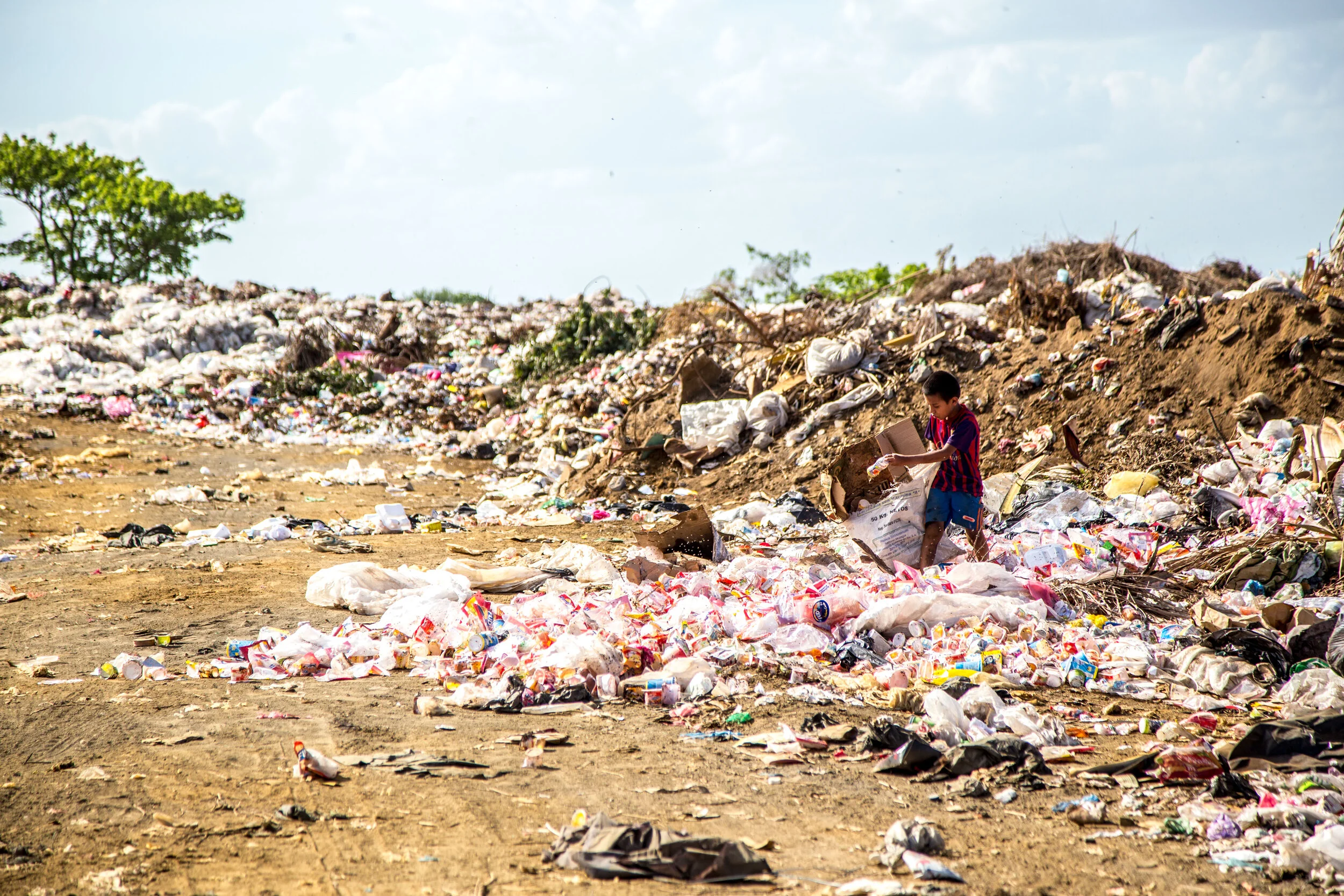Trash Talk
Photo: Hermes RiveraAround 2004 we started offering printing on compostable labels and it's something we're quite proud of. However, as time passes, we've become increasingly aware and bothered by a gap in the system: Trash management. Our compostable labels are being used on compostable packaging which is used, then put in a bin of compostable-ware, trucked away to an industrial compost and composted. Easy.
No. Not really.
Our federal government doesn't seem interested in a national, cohesive policy on trash management. By trash management, what happens to the stuff we use and discard throughout the day which becomes trash? What is the end-of-life scenario for all of it? Is it separated out into what can be recycled; like glass, paper and metal? Is it organic/food matter or industrial compostable-ware such as cups, dishware, flatware and packaging made from plants (yes, like our labels) that should be composted?
For most of the country the answer is no. For most of the country all of it is carted off and dumped into a big hole in the ground. Landfill.From a financial and short-term perspective if you're living in rural America it's less expensive to dig a hole, toss it and forget it. But for the high density city trash management is expensive. NYC used to put it on a boat to Staten Island and dump it there. That landfill is maxed out and now NYC is trucking it upstate and to other states and environs.
And so, cities are dealing with trash in various ways. San Francisco, Seattle and a handful of other cities are separating and sorting.There is another part to this trash talk. We consume and discard Massive Amounts of Trash. So much of it that we don't have the infrastructure or businesses to handle all of it: All of the recyclable plastic, paper, metal etc.
For years China has taken our waste and shipped it back to their country. Instead of digging wells for oil (ok, they don't have much oil) to make plastic or cutting down trees for paper (have they learned from that mistake?) they take our plastic, paper etc., and repurpose. And then they sell it back to us in all forms plastic, recycled paper etc. The United States, Hong Kong and Japan are China's biggest sources for used plastic. In October of this year (2017) China has stated they will no longer accept much more of this waste in the form of plastic and paper.
Right now, this trash is piling up and the companies that deal with this (and it's a business with a lot of money involved) are now storing trash in these ginormous warehouses (Long Beach, for example) until something can be figured out. China now has so much of their own stuff they no longer need ours.
Why are we incapable of taking a long term view for all of the trash we bury in the ground or have ship(ped) off to China?
In addition to the financial there are the environmental and moral consequences of leaving it in the ground. We know a few of the consequences: From methane, ammonia, sulfides and carbon dioxide gases created in landfills to water leaching through the landfills, entering and contaminating our water system and either killing or changing the waterlife on a molecular level.
All that plastic and so much is being dumped into our oceans, all of them and everywhere - small plastic polymers affecting the micro-organisms that eat it and then All of this eventually works it's way up the food chain to you. And me. All of us.
As long as you eat or drink there is no escape. Yes, in rural America it's more expensive to sort and recycle/compost the trash today. But what about 50,100,200 years from now? Will they look back at us and wonder at (or curse) our wasteful profligacy?
Consider that recycling 1 ton of paper saves enough energy to power the average American home for six months, while using recycled material to produce plastic reduces the energy required by as much as 87%.
What to do?
Get involved and begin a dialogue with your elected representatives - your city council - the people that should be easy to contact since they're in your area. Call your waste management company and tell them you want a recycle bin and a compostable bin.
Thanks to following news sources. Please expand your knowledge:
https://www.bloomberg.com/view/articles/2017-07-20/china-s-war-on-foreign-garbage
https://www.marketplace.org/2017/10/17/sustainability/china-wants-nothing-do-americas-trash

